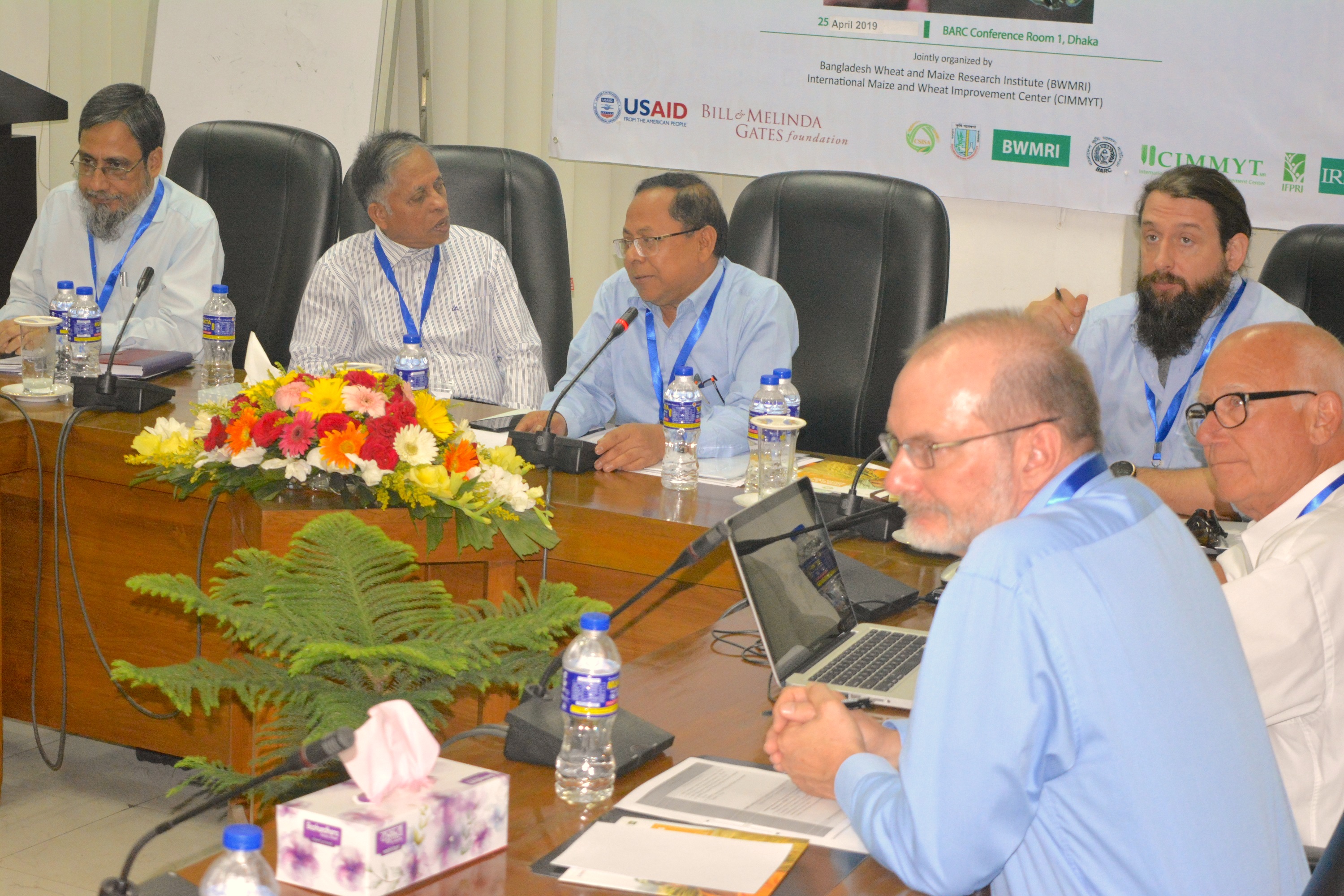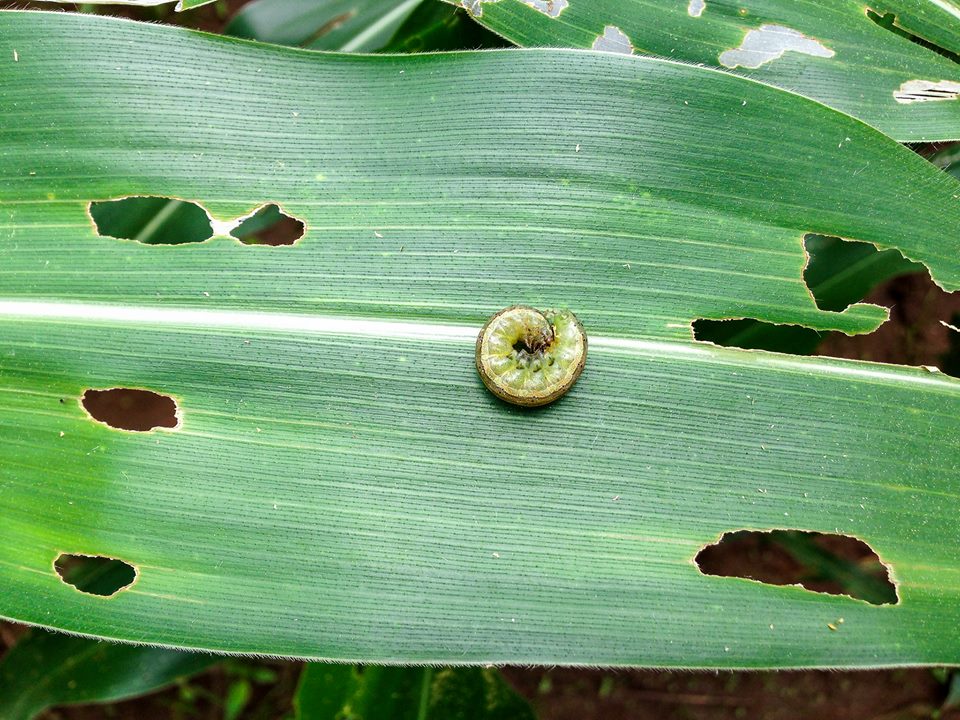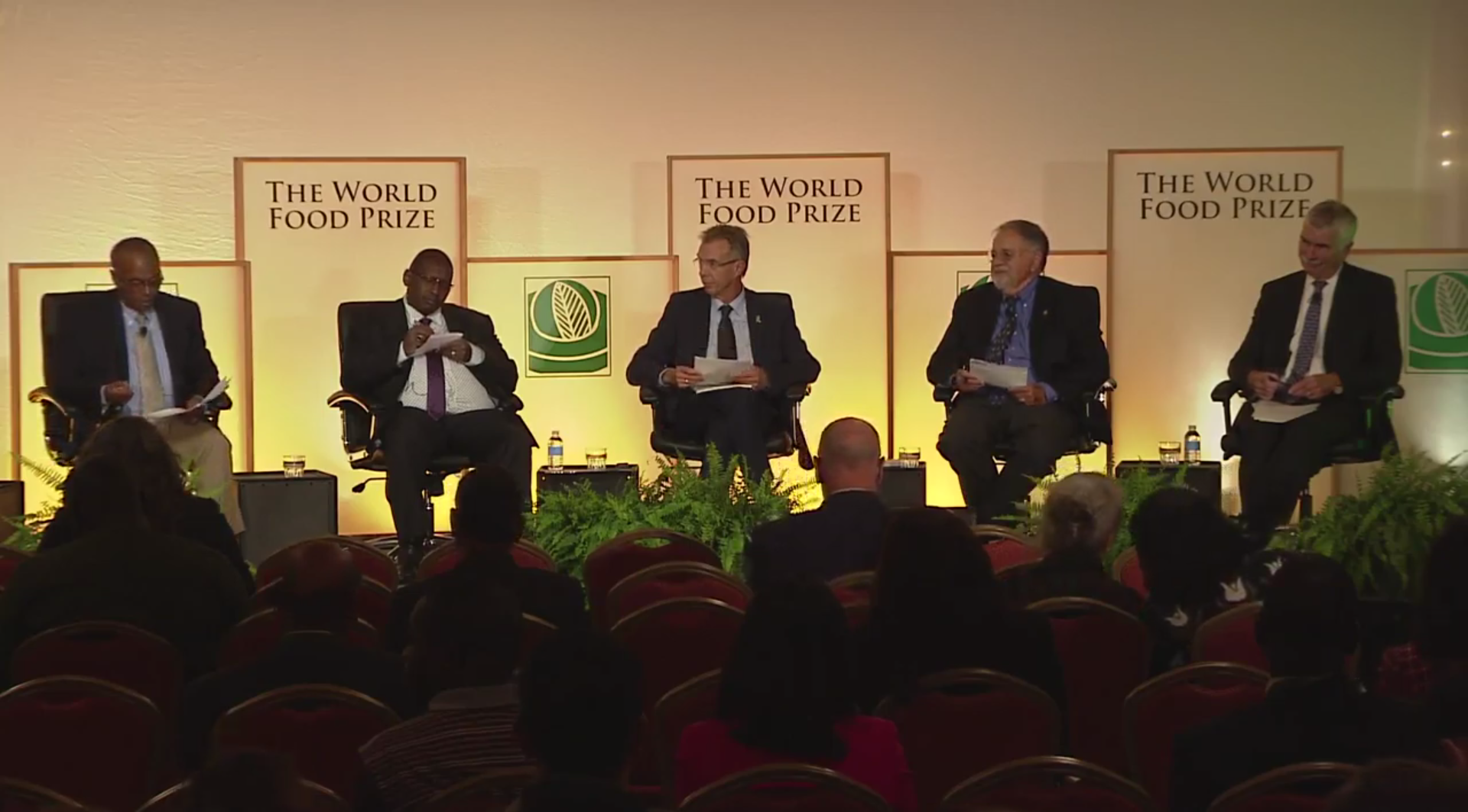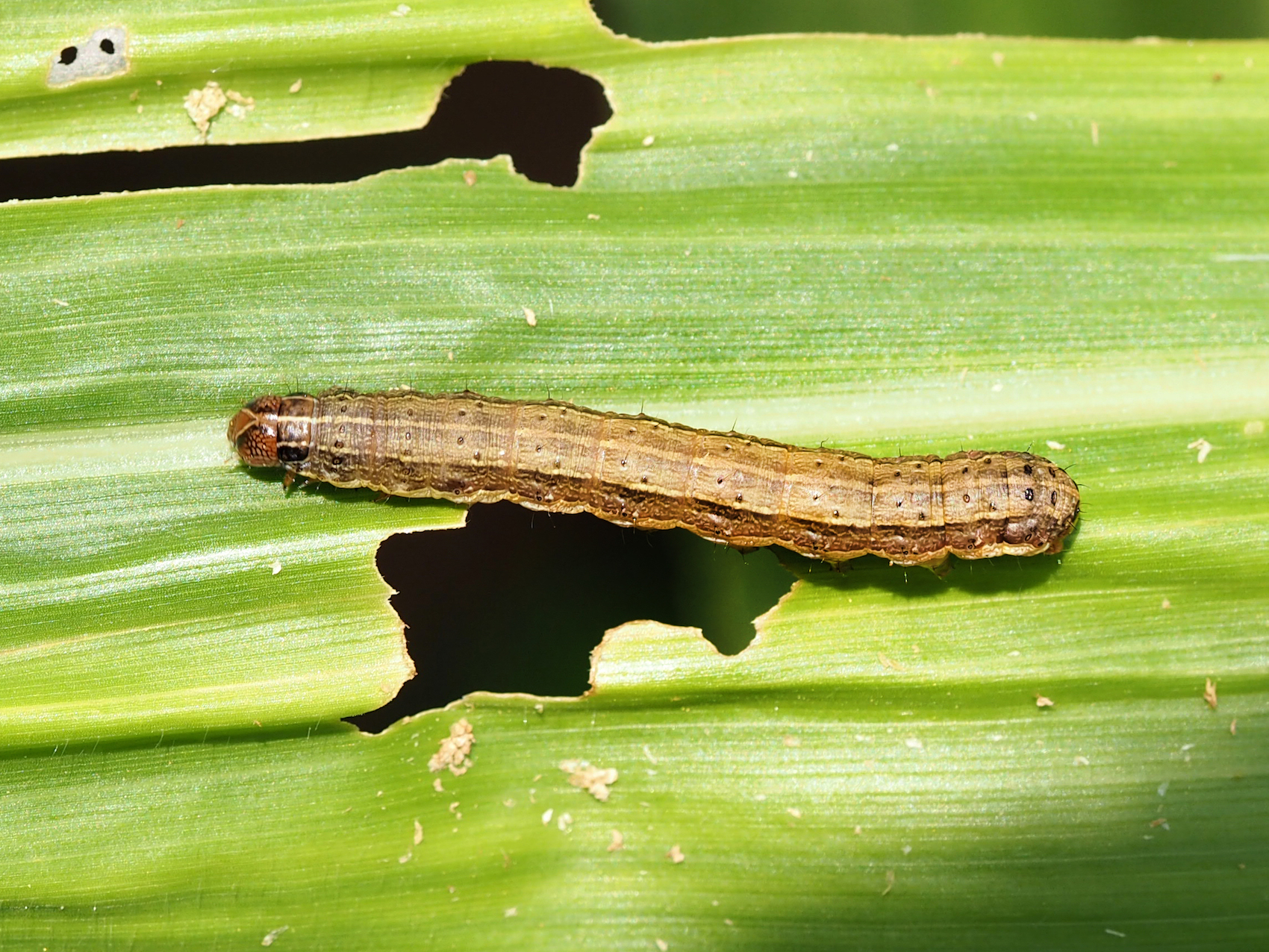
The International Maize and Wheat Improvement Center (CIMMYT) and the Bangladesh Wheat and Maize Research Institute (BWMRI), organized a training on fall armyworm on April 25, 2019 at the Bangladesh Agricultural Research Council (BARC). Experts discussed the present outbreak status, progress on strategic research, and effective ways to control this destructive pest.
The event featured Dan McGrath, Entomologist and Professor Emeritus at Oregon State University, and Joseph Huesing, Senior Biotechnology Advisor and Program Area Lead for Advanced Approaches to Combating Pests and Diseases at the United States Agency for International Development (USAID). Also attending were senior officials from Bangladesh Agricultural Research Institute (BARI), Bangladesh Rice Research Institute (BRRI), Bangladesh Agricultural University (BAU), Department of Agricultural Extension, BARC, BWMRI and CIMMYT.
“Fall armyworm cannot be eradicated. It is endemic and farmers have to learn to manage it,” said Huesing in his overview of the fall armyworm infestation in Africa. He also mentioned that fall armyworm is generally followed by southern armyworm, so Bangladesh will need a strategy for managing multiple pests.
“Fall armyworm cannot be eradicated. It is endemic and farmers have to learn to manage it.”
— Joseph Huesing, USAID
Huesing explained that an effective approach for controlling fall armyworm and other pests is “knowledge, tools and policy.”
According to Huesing, Bangladeshi farmers have adequate knowledge about the pest and how to control it, especially compared to African farmers. The next step is securing the necessary tools to control fall armyworm, like spraying their fields with necessary insecticides by authorized personnel. Huesing emphasized the importance of appropriate policy implementation, particularly to ensure the registration of the right kind of insecticides assigned to effectively control fall armyworm.
Fall armyworm is a fast-reproducing species that can attack crops and cause devastation almost overnight. Even though the level of infestation in Bangladesh is still relatively light, more than 80 varieties of crops have already been attacked in 22 districts within just a few months.
Huesing indicated that safer options included handpicking of the pest, treating seeds, pheromone traps, flood irrigation and crop rotation. Currently, to help farmers learn more about the pest, the Department of Agricultural Extension is distributing factsheets and conducting awareness-raising workshops in different villages.
McGrath focused on the long-term management of fall armyworm and how Bangladesh can learn from the experience of Africa in order to avoid the same errors. McGrath suggested that weather forecasts were an important tool for helping determine when and where outbreaks might occur. Training relevant personnel is also a crucial aspect of reining in this plague. “Training the trainers has to be hands on. We need to put more emphasis on the field than on the classroom,” McGrath said.
This workshop was part of the Cereal Systems Initiative for South Asia (CSISA).

 Nutrition, health and food security
Nutrition, health and food security 


